Strong Support Among Taiwanese for More Proactive Measures to Combat Climate Change
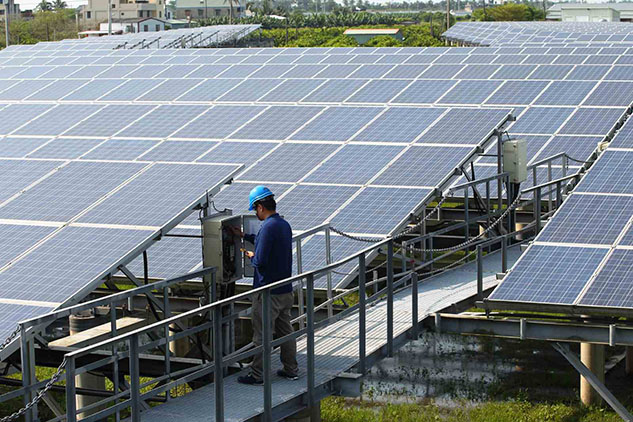
Source:Chien-Tong Wang
A recent survey by the National Taiwan University's Risk Society and Policy Research Center (RSPRC) has found, energy transition ranks among the top three long-term priorities that Taiwan's government should be focused on. Also, a majority of Taiwanese agree on the necessity of implementing carbon tax in some form, so as to deal with climate change.
Views
Strong Support Among Taiwanese for More Proactive Measures to Combat Climate Change
By Roy Ngerng (RSPRC, NTU)web only
Energy transition ranks among the top three long-term priorities that Taiwan’s government should be focused on, a new survey by the National Taiwan University’s Risk Society and Policy Research Center (RSPRC) has found. RSPRC held a press conference on Wednesday (May 13, 2020), where it shared its findings. The survey also found that there is in fact bipartisan support among Taiwanese for the government to promote energy transition urgently so as to combat the impacts of climate change. A majority of Taiwanese also agree on the necessity of implementing carbon tax in some form, so as to deal with climate change.
Energy Transition is One of the Top Priorities for Taiwanese
While much of the attention globally and even in Taiwan has shifted to the COVID-19 pandemic over the last few months, climate change and energy issues continue to be an important focus among Taiwanese. In fact, while COVID-19 prevention ranks second among the priorities Taiwanese consider to be important (42.4%), accelerating energy transition and carbon reduction ranks just behind, in third place (38.7%). The economic uncertainty wrought on by the pandemic has meant that economic development continues to be a major concern among respondents (49.8%), while reducing income inequality comes in at a close fourth (37.6%).
 Chart 1: Energy transition and carbon reduction should be key government long-term policy priorities
Chart 1: Energy transition and carbon reduction should be key government long-term policy priorities
However, while energy transition ranks third as a priority, RSPRC Postdoctoral Research Fellow Dr. Chung-pei Pien pointed out that the goals of energy transition and economic growth do not actually conflict against each other. In fact, he pointed out that 73.1% of survey respondents also believed that pursuing energy transition could have a positive effect on economic growth, and is therefore a win-win for both.
The Bipartisan Support for Energy Transition in Taiwan Should Galvanize Stronger Action from the Government
RSPRC’s survey is perhaps timely ahead of President Tsai-Ing wen’s second inauguration ceremony next week – under Tsai, her government has aimed to increase renewable energy in Taiwan’s mix to 20% by 2025, and this is not yet including an additional 10 GW of offshore wind capacity that Tsai has committed between 2026 and 2035 – but there is high support for Tsai’s 2025 target: 78.5% of the respondents agreed with Tsai’s 2025 targets, and only 12.1% did not.
In fact, an even higher 82.4% of Taiwanese also agreed that the promotion of energy transition should be accelerated in order to prevent future generations from falling victim to climate change, with there being clear bipartisan support, among 84% pan-green Democratic Progressive Party (DPP) supporters and 76.2% of pan-blue Kuomintang (KMT) supporters.
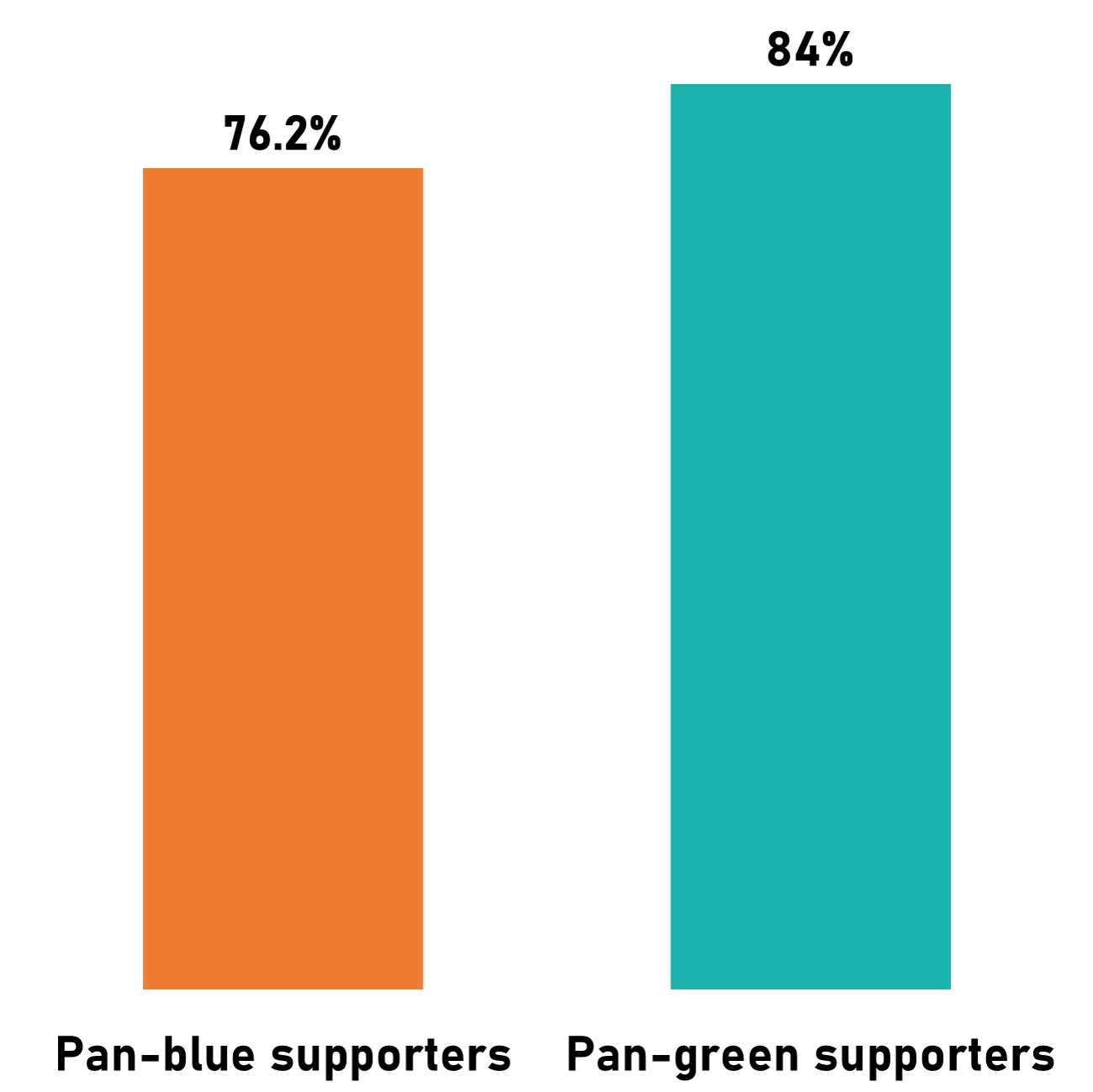
Chart 2: Taiwanese on both sides of the political spectrum believe energy transition should be proactively pursued by the government
The support spanning the political divide should therefore engender greater confidence within the government to pursue its energy objectives, the RSPRC researchers said at Wednesday’s press conference.
Given these findings, RSPRC Postdoctoral Research Fellow Dr. Chia-Wei Chao said therefore presents as a window of opportunity for President Tsai to embark on a stronger pathway toward spearheading a national response to combat climate change.
Taiwanese Are Willing to Accept Carbon Taxes to Help Reduce Carbon Emissions
Last month, 143 scientists from 82 academic and research units led by seven top experts highlighted in a petition to the government that Taiwan’s climate action has not been aggressive enough and called on the government to invest a similar amount of resources and attention to fight climate change, as has been dedicated toward combating COVID-19.
Professor Chou, who is also the Principal Investigator of Science Media Center Taiwan, and one of the key signatories of the petition, emphasized on the need for a clear carbon reduction roadmap, pointing to Taiwan’s “lackluster climate action response” thus far.
More than 20 environmental groups in Taiwan last month also called on the government to undergo just transition toward a low-carbon economy, pointing out that COVID-19 has given us pause to think about the impact of the high-carbon industries to our environment, but also how things should not go back to business-as-usual after COVID-19. In fact, the groups are calling on the government not to reduce fuel prices locally even as oil prices have come down globally, so that the savings can be channeled into funding for a low carbon transition in Taiwan.
This was a point supported by Taiwanese who responded to RSPRC’s survey, who indicated varying levels of support for higher fuel prices as a means to reduce carbon emissions. 56.7% of respondents pointed to a willingness to increase prices, with even 34.3% who were willing to increase prices by as much as NT$3 per kilowatt-hour (kWh).
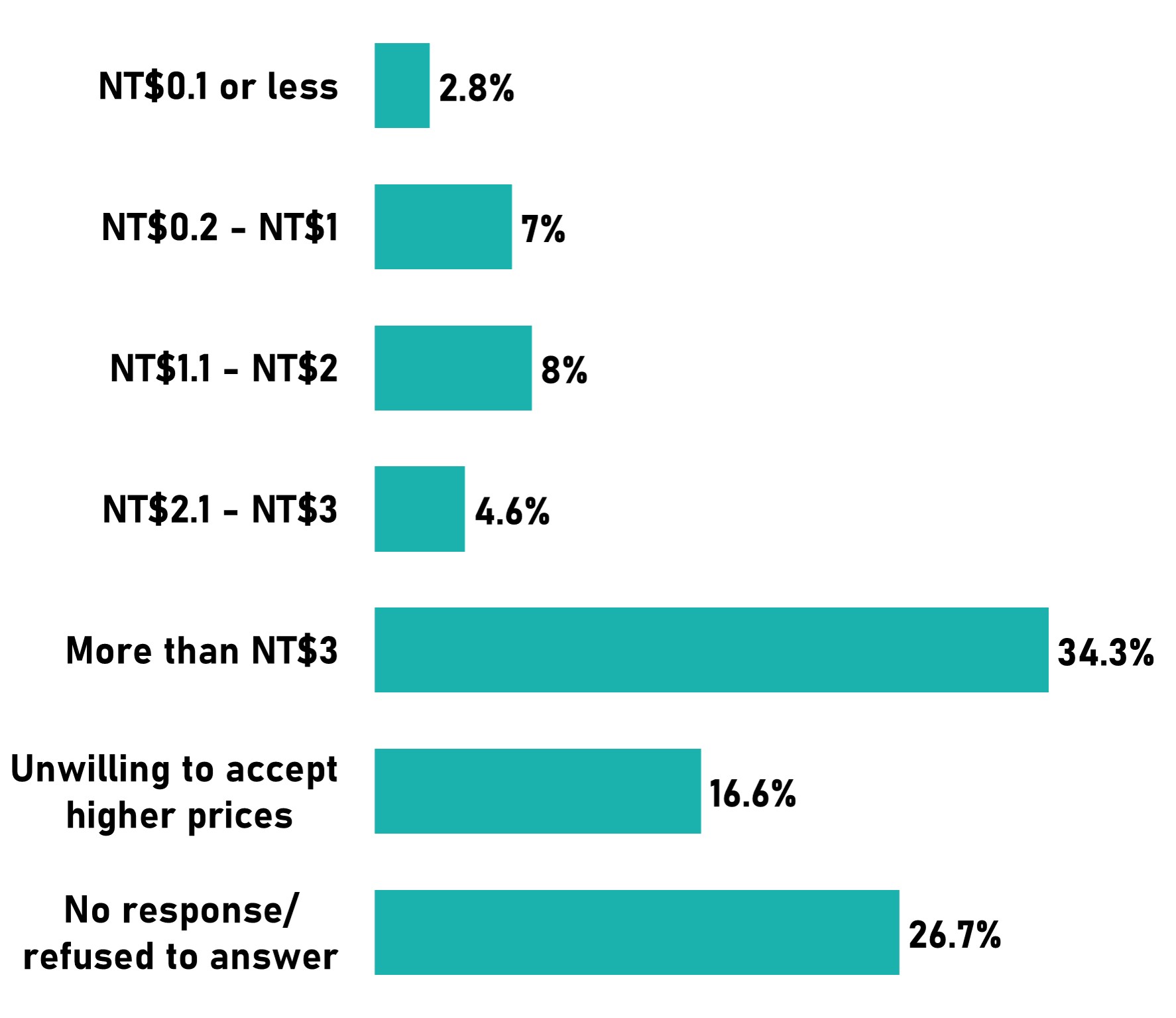
Chart 3: The majority of Taiwanese are willing to accept higher fuel prices to combat rising emissions
RSPRC Director Prof. Kuo-Hui Chang pointed out that the results are not unexpected as the ruling Democratic Progressive Party government has been generally consistent in its promotion of renewable energy over the last few years, and given such steadfast development, the attitudes among Taiwanese could have progressed along as well. In fact, Prof. Chou pointed to the very fact that a majority of the respondents to RSPRC’s survey were still willing to accept price increases in spite of the current COVID-19 pandemic impacting on global markets, as an encouraging signal for the government to enact bolder carbon reduction measures.
Dr. Chao added that businesses in the past have tended to play up the unwillingness of Taiwanese to pay higher fuel prices as a way to lobby lawmakers not to increase prices, but the government should not be blindsided by corporate interests which want to continue to pay depressed fuel prices, and should take heed that Taiwanese would be willing for prices to increase if they can see the benefits to the environment – and this should be the angle we should approach the matter, he said.
Moreover, the state of lower oil prices globally is just the perfect opportunity to implement carbon reduction measures such as energy tax, in order for the external environmental costs of fossil fuel use to be internalized, a point he said has been made by global experts. He also highlighted out that estimates by MOEA also pointed to electricity prices rising between NT$3.08 and NT$3.39 per kWh by 2025, based on current policy directions and fuel costs – which is in line with RSPRC’s survey results.
Stronger Measures Are Needed to Hold Businesses Accountable to their Climate Obligations
To hold businesses accountable, Taiwanese in RSPRC’s survey also support enacting stronger measures to increase the responsibility of businesses to energy transition.
Among stimulus payments provided to businesses to help tide them through COVID-19, 59.8% of Taiwanese agreed that these businesses should also have to abide by energy transition obligations, with only 29.3% who disagreed.
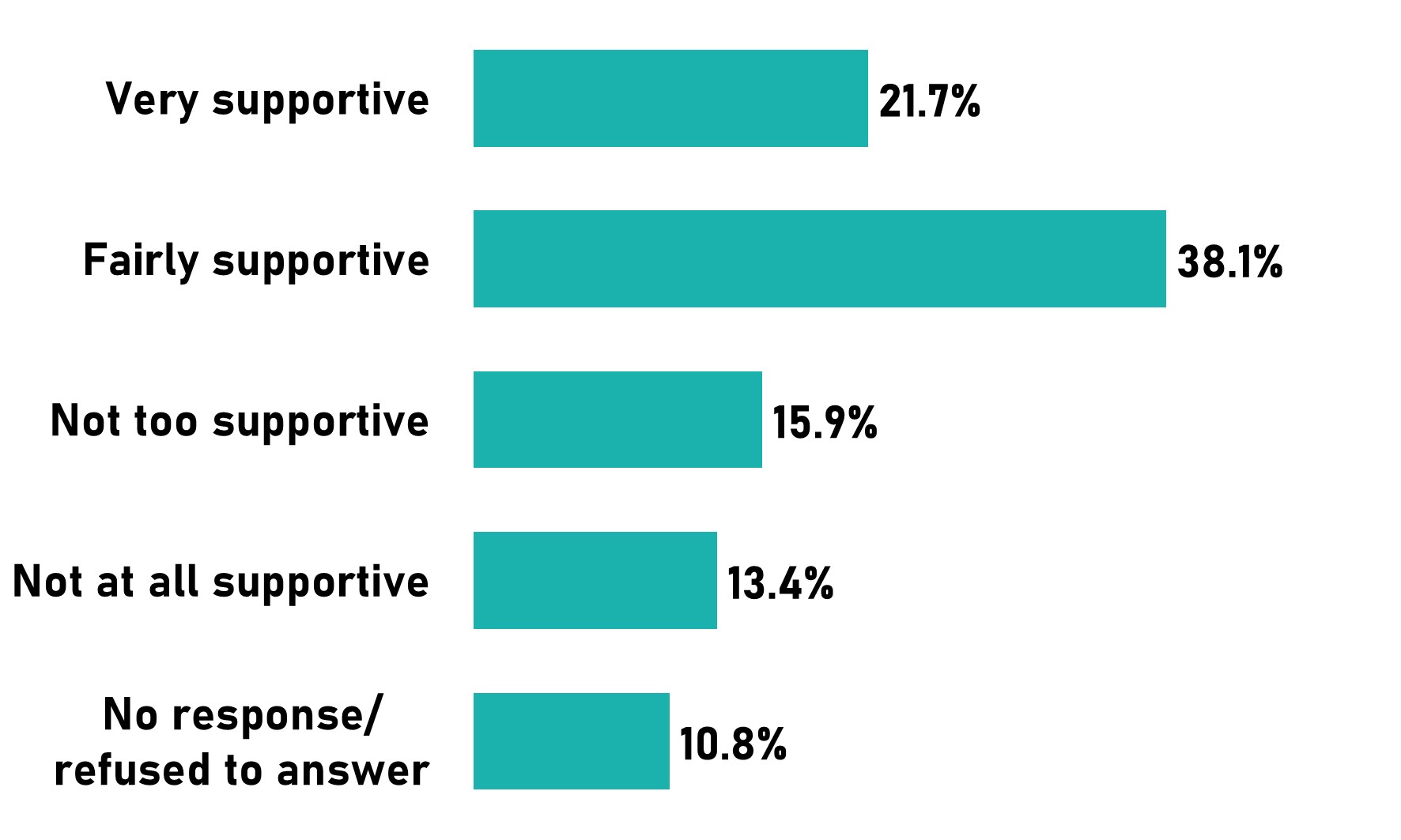
Chart 4: Support for energy transition obligations for companies receiving COVID-19 government relief is high
MOEA last week also announced that of the Taiwanese companies driven by the US-China trade war and the COVID-19 pandemic to return to Taiwan, 473 Taiwanese companies have pledged to invest a total of NT$989.1 billion under a government investment program as of last Friday. In RSPRC’s survey, 82.1% of Taiwanese also agreed with the idea that these returning companies should have to undergo an energy efficiency review of their operations, while only 8.3% do not.
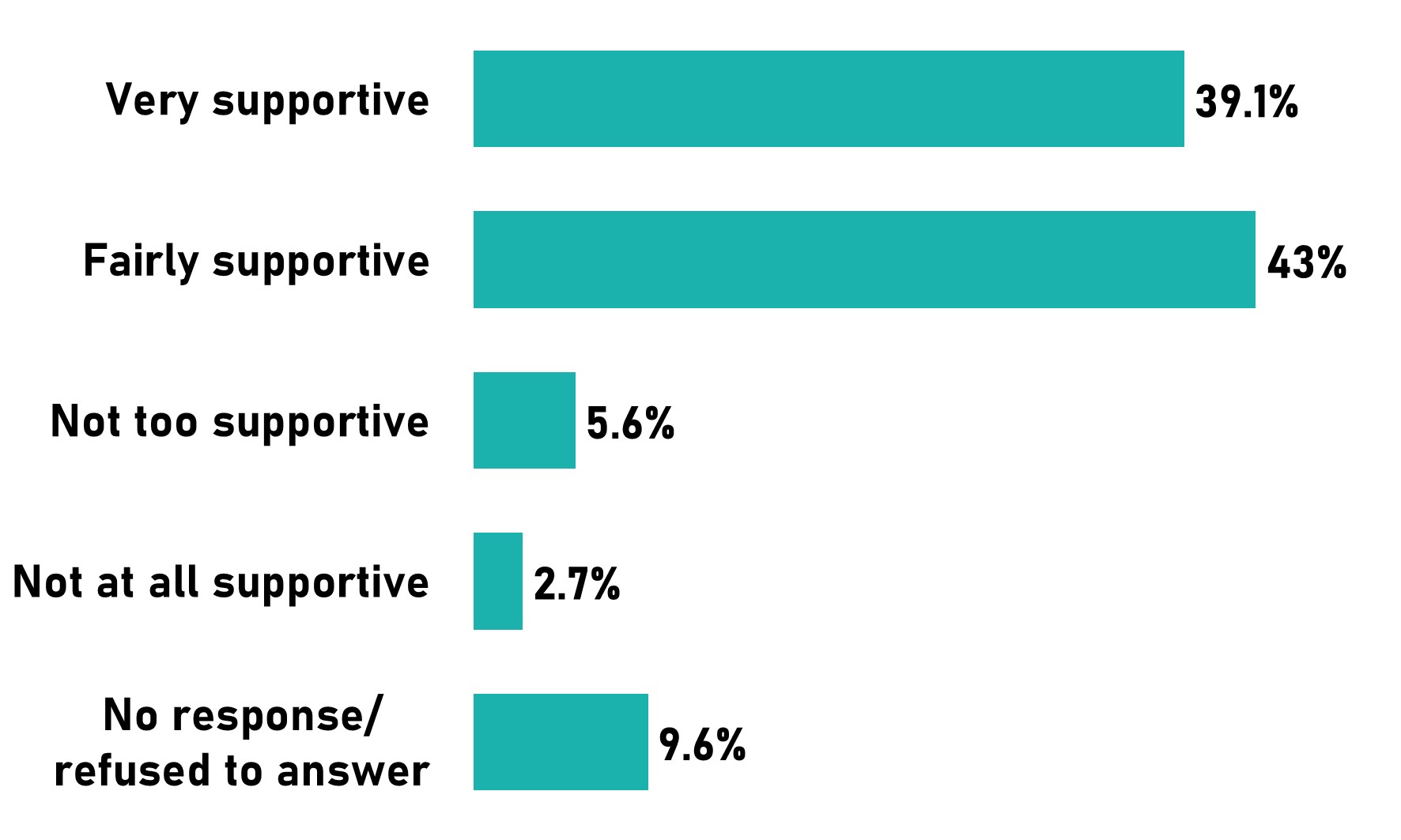
Chart 5: Taiwanese are supportive of developing a mechanism to review the energy efficiency of returning Taiwanese companies
However, Prof. Chou cautioned, the budget initiatives to encourage industrial transformation should not be piecemeal, and should be part of a global budget aimed at transiting into a green economy. He added that, as Taiwan’s legislature will be debating on a second budget for the nation’s forward-looking infrastructure development program this year, the government should start focusing on how the budgetary requirements for businesses should be tied to green reforms as part of the overall infrastructure plan.
Trust Needs to Be Built to Propel Taiwan’s Energy Transition Forward
However, while Taiwanese are generally supportive of stronger climate measures, trust remains a hurdle that needs to be crossed – in RSPRC’s survey, 42.2% said they had the most distrust toward businesses among energy-related players, while government agencies came a close second, with 34.4%.
On the other hand, government agencies were also the third most trusted among respondents (26.6%), with academics and experts the most trusted (59.3%) and environmental groups the second most trusted (37.6%).
Academics and experts, as well as environmental groups were also the least distrusted, among 3.6% and 12.7% of the respondents, respectively.
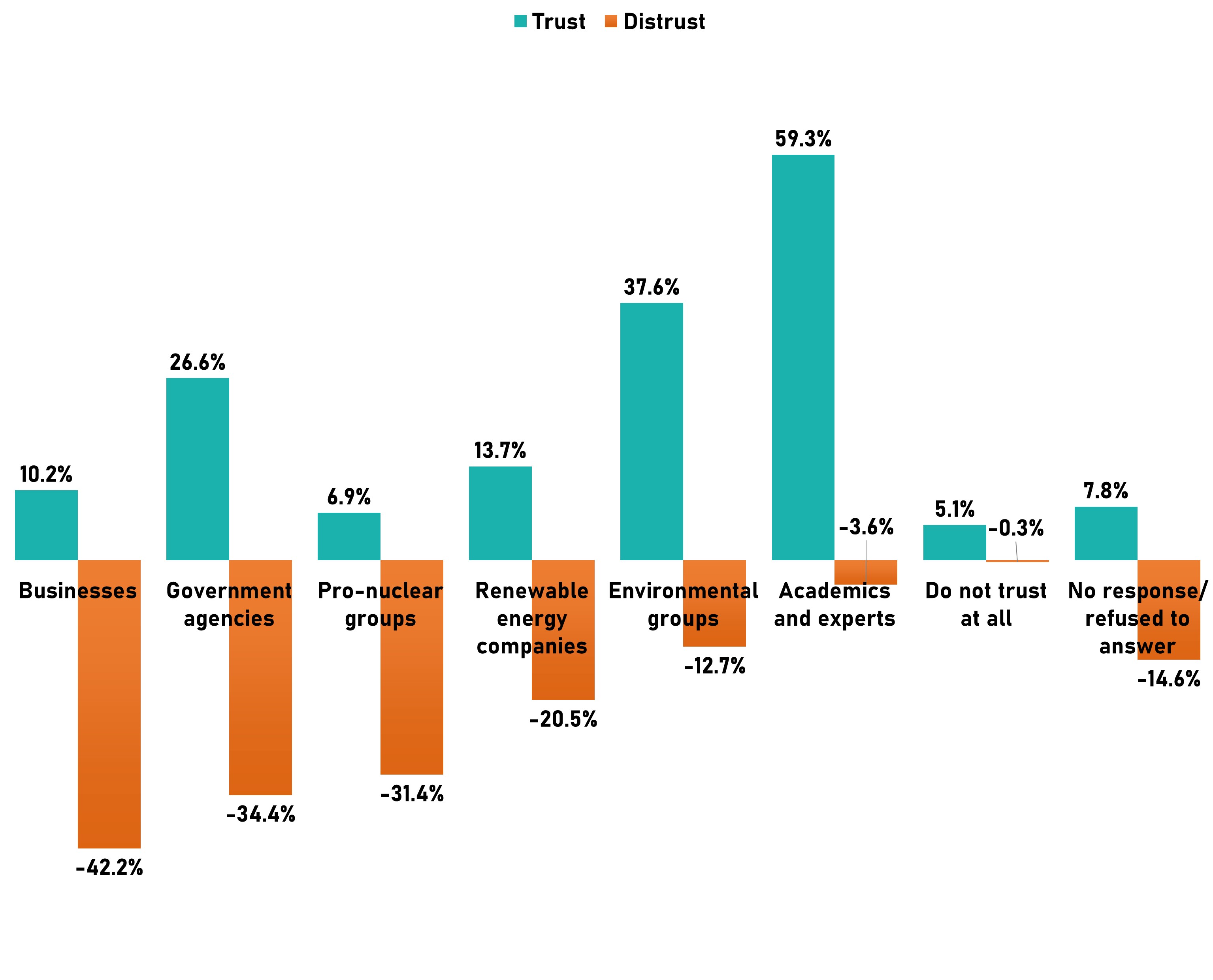
Chart 6: Trust among businesses is lowest while trust among academics and experts is the highest
An interesting point to note is that pro-nuclear groups were also third least trusted (31.4%), which could suggest a misalignment in the goals between pro-nuclear advocates with the perception of how energy transition should be carried out among the general public.
A contradiction also exists among Taiwanese who believe in the necessity for energy transition and Tsai’s renewable energy target, who yet have an ambivalent attitude towards renewable energy companies – these companies rank both the fourth most trusted and fourth least distrusted group – which indicates that more work might need to be done by these companies to educate the general public of their work, and to operate with greater transparency and communication, so as to engender greater trust toward them, and to enable Taiwan to achieve its long-term energy transition goals.
Taiwan Needs to Develop a More Holistic Plan at the National Level to Address Climate Change
On the whole, RSPRC’s survey was a mixed bag of responses – Taiwanese continue to believe in the urgency of Taiwan’s energy transition, and do general support policies on energy transition and carbon reduction, though their trust in the ability of the government and businesses to carry out these plans is an issue that needs to be addressed. Nonetheless, panelists at the press conference pointed to how the high level of trust among academics and experts means that they could become the middleman with which the government could engage to better enhance its energy communication with the public.
As part of the solution, RSPRC is also calling on the government to develop its own Green New Deal, drawing comparisons with the one that South Korea’s ruling party hopes to implement. Specifically, under the Deal announced by South Korea’s ruling party in March this year, it aims to achieve a “carbon zero society” by 2050, by transiting the current economic system, as well as industries and jobs, into low-carbon ones, via introducing clear pathways, such as the implementation of a carbon tax, divestments from coal, and a clear educational transition plan to help transit workers into a green economy.
These are recommendations RSPRC also proposed in its long-term energy transition flagship report released last November as well – such as on the need to strengthen green financial investments, and a clear timeline for energy tax so as to internalize the external environmental costs of carbon emissions. One important measure, Prof. Chou highlighted, is the setting up of a council on climate change directly under the Executive Yuan to spearhead Taiwan’s climate change strategy toward a zero carbon society by 2050, so that there can be better coordination across various government ministries in developing a consistent global strategy for Taiwan. An independent committee comprising experts in the various fields can also be part of the strategy to promote greater trust among the public of the government’s climate strategy.
In fact, he pointed out that Taiwan has outshone itself in how exemplary it has managed to contain COVID-19 within its shores, and this indicates that the nation would therefore have similar capabilities to undergo transformation toward a low-carbon economy. Moreover, the world as we know it will transform tremendously after the dust settles from the coronavirus, and the global conversation suggests that a new economic model might even develop, which therefore points to the urgency for Taiwan to adopt international approaches toward transiting into a more sustainable society.
Indeed, both Taiwan and South Korea have done well tackling COVID-19, but if Taiwan were to continue to stand out, then it must continue to reinvent itself and implement policies that will enable Taiwan to continue to be seen as a progressive country focused on protecting not only the health and well-being of its citizens, but also in its ability to undergo a transformation toward a more sustainable economy and environment.
RSPRC’s survey was conducted from 6 to 10 April this year, among 1,087 valid respondents, of which 785 were conducted via landline phones and 302 were conducted via mobile phones. It had a confidence level of 95% and a margin of error of ±2.97%.
About the Author
Roy Ngerng is an assistant research fellow at the Risk Society and Policy Research Center, National Taiwan University.
Risk Society and Policy Research Center at National Taiwan University (RSPRC, NTU) is one of Taiwan’s foremost centers conducting research on the risk and social impact of Climate Change, Energy Transition and Sustainability Transitions in Taiwan.







